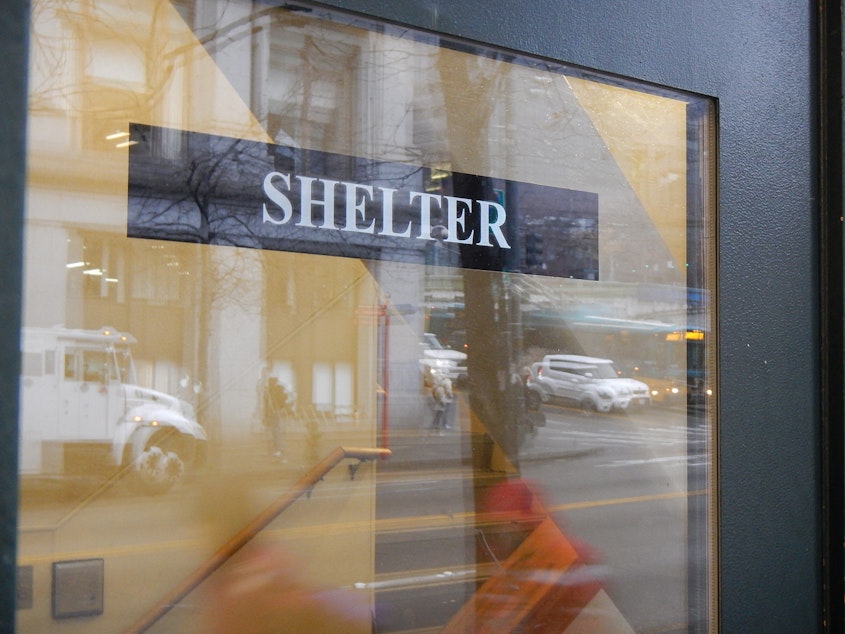Want city money for homeless services? Prove you get results

For the first time in more than a decade, the City of Seattle will bid a large chunk of its homelessness services contracts.
This marks a shift in the city’s approach to homelessness services. The system in Seattle, involving hundreds of programs and providers, has been called disjointed and inefficient in the past.
Now, the city is looking to change that. Seattle Mayor Ed Murray is putting just over half of the city's homelessness budget up for grabs and, under the new competitive process, service providers must prove they can get results to get money.
City officials say this could attract new providers. It may also mean some existing organizations no longer receive funding.
Providers who do get part of the $30 million pool will have to meet pretty high standards. They'll be expected to meet new minimum performance standards set by the city in areas including how many people exit homelessness through specific programs, how long people stay in the system, and how often people return to homelessness after a program helps them to get out.
Sponsored
For instance, shelters that receive funding will be expected to get 40 percent of single people, and 65 percent of families, that come through, into permanent housing. And the city wants them to do it in shorter time periods.
Other housing programs will be required to get 80 percent of their clients out of homelessness.
And, in many cases, the success (or failure) of a program to meet these standards will be tied to their ability to access a portion of their annual funding.
Projects will be evaluated quarterly and if the project achieves minimum performance standards, they'll get the next installment of funding. If not, that piece of funding could be withheld.
There are questions about whether this kind of pay-for-performance model, and the focus on meeting specific targets, would result in a perverse incentive for providers to focus on people who are easier to help, rather than on tough cases.
Sponsored
But city officials say they hope continued use of data will help prevent any group from being ignored.
The new bidding process makes changing city priorities clear. Funding is being shifted away from programs that put people in temporary, transitional housing. Instead, they're making programs that get people back into the private market a priority (this follows national best practices, but in a market like Seattle's it could prove challenging).
However, there’s nothing in the new call for contract bids that mandates providers must find housing for homeless clients within Seattle.
City officials say their focus is on getting people out of homelessness, and if that means they’re housed outside the city, then so be it.
In addition to housing, the city is also placing a new focus on reducing racial inequity in the system.
Sponsored
American Indian and Alaskan Natives exit homelessness at a lower rate than other groups in Seattle, and African-Americans are more likely to experience homelessness.
Groups applying for funding will be asked to commit to increasing the rate at which American Indian and Alaskan Natives exit the system – to a rate that’s comparable to other races. And to increase prevention and diversion services for African-Americans at risk of becoming homeless. Organizations who tackle racial inequities will be prioritized in the funding process, officials say.
The city will invest in multiple proposals across a range of providers and programs.
Up to $16 million (just over half the funding pool) is available for emergency services like day centers, overnight shelters and hygiene services.
The rest of the money will be divvied up between multiple services, including outreach, permanent supportive housing, rapid re-housing (a type of program that provides rent subsidies and assistance in getting people back into the private rental market), and transitional housing.
Sponsored
The deadline for proposals is Sept. 5, and awards will be made by the end of the year.
A range of people will help decide who gets funding, including people who have experienced homelessness.
